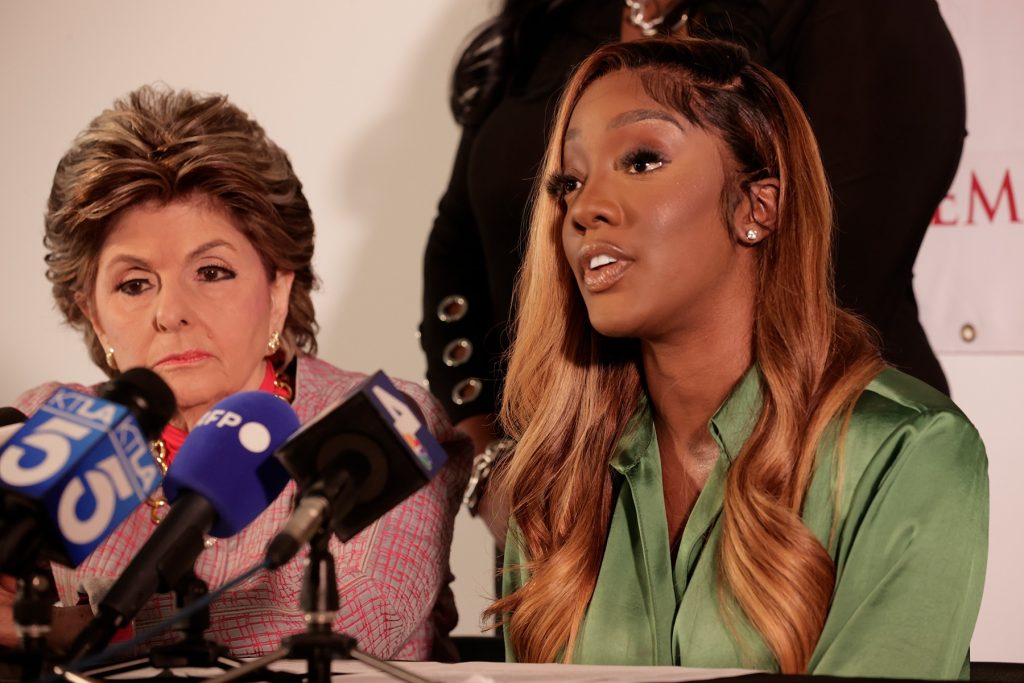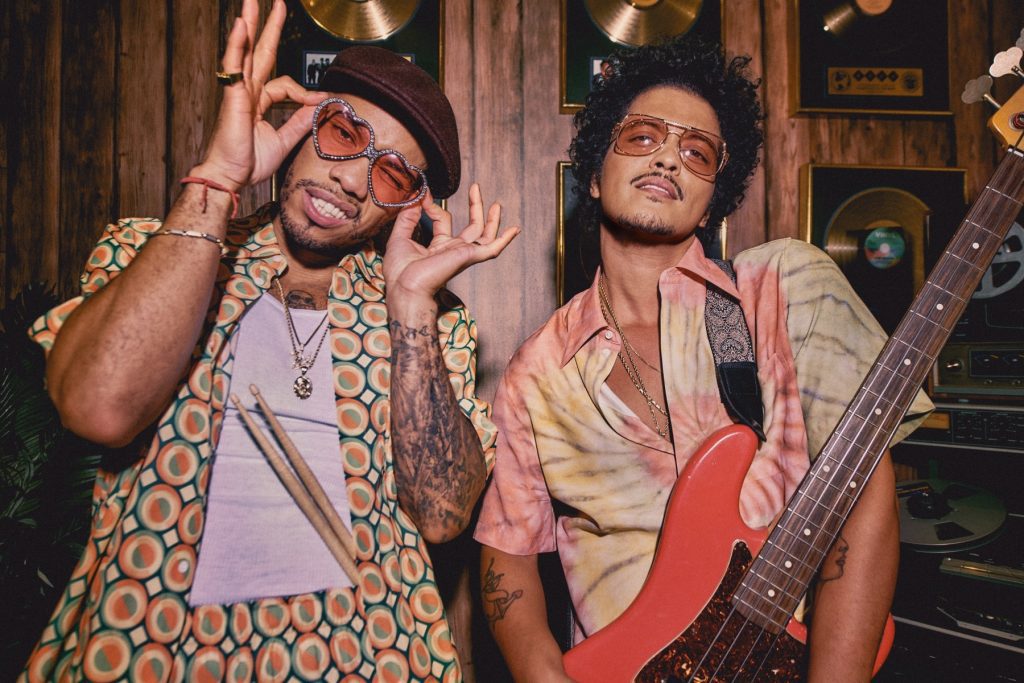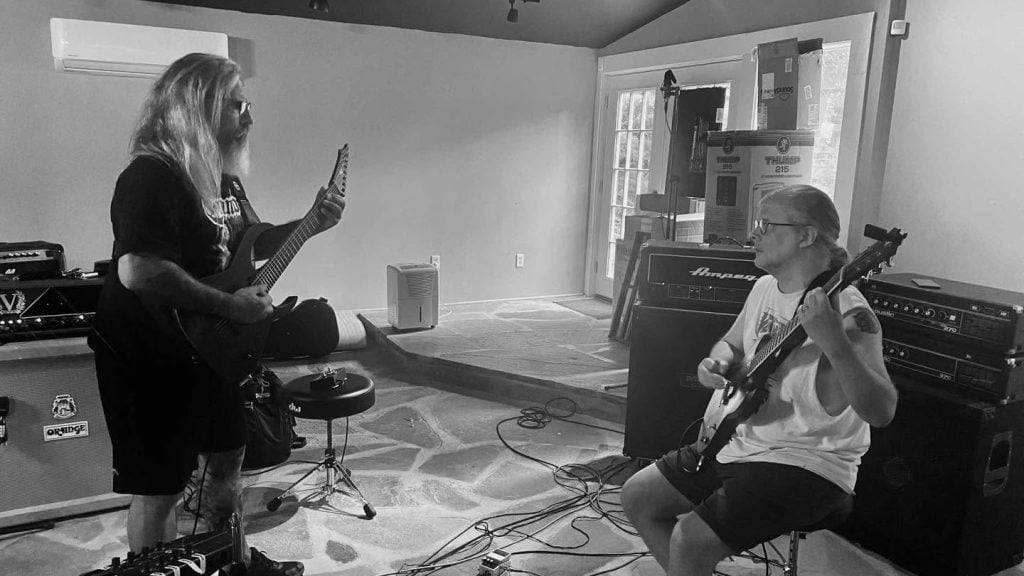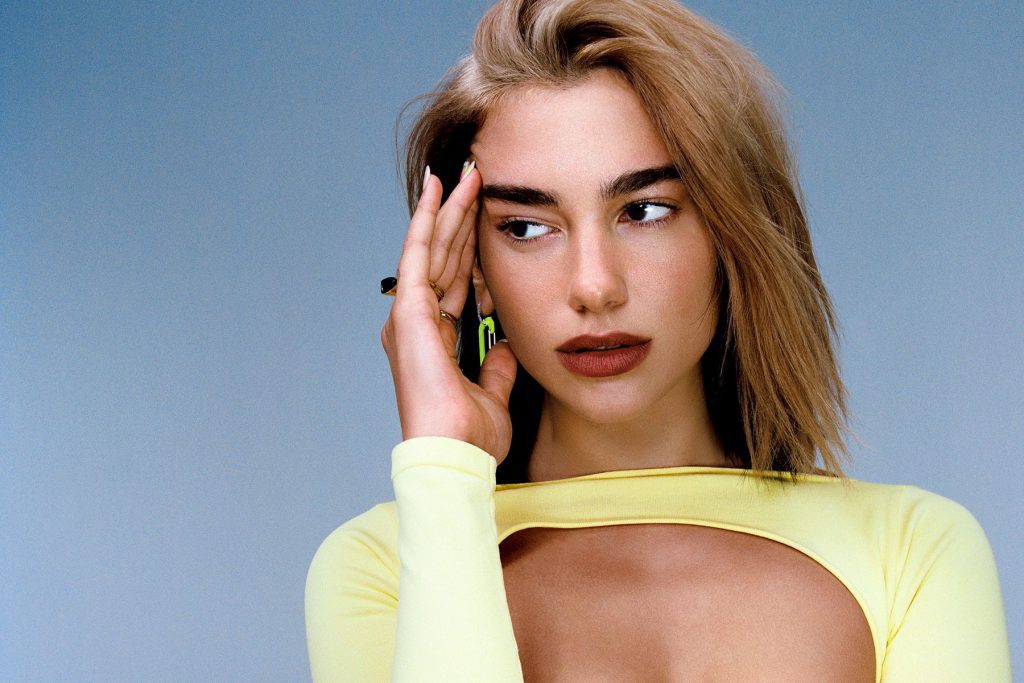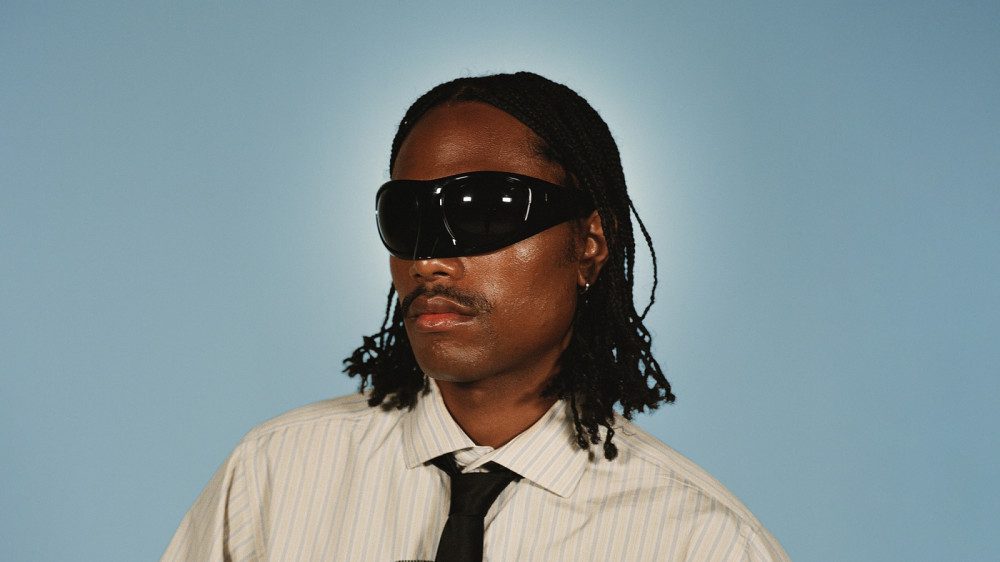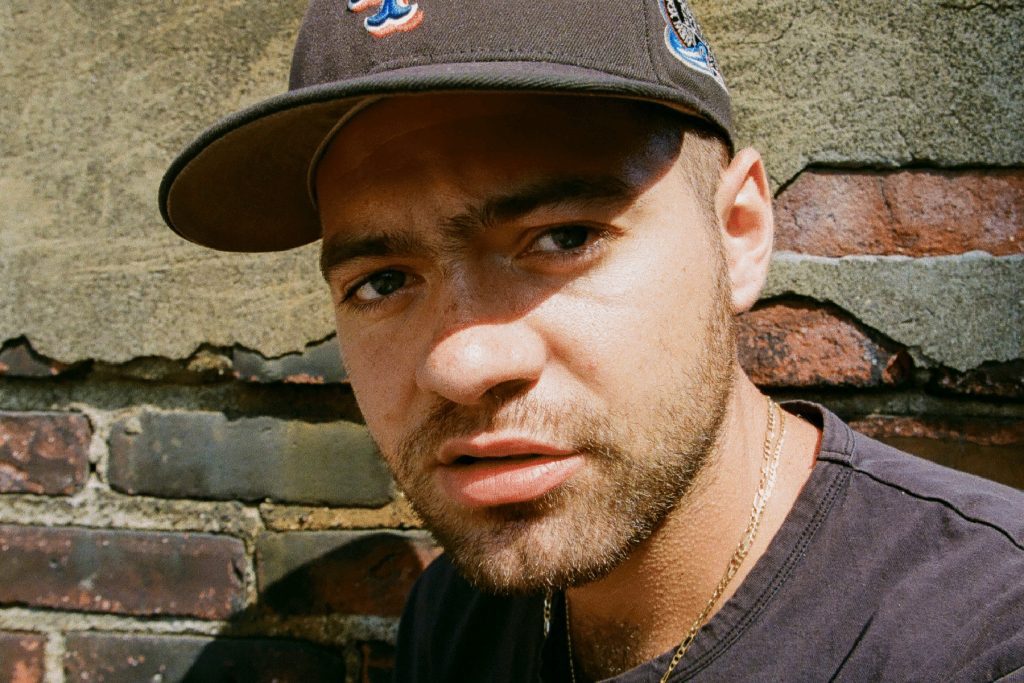
How Wiki Found the Inner Peace Needed to Make His New Album ‘Half God’
Despite being only 27-years-old, Patrick “Wiki” Morales is something of an OG in terms of New York hip-hop. As a teenager, he and the members of the group Ratking made waves in the city’s rap scene for their youthful energy and flair for sonic experimentation. Even then, Wiki stood out as a preternaturally gifted young MC, delivering nimble, tongue-twisting bars in a quintessentially New York — or, rather, “New Yawk” — register. The Manhattan native raps with a palpable love for his city and much of his work since becoming a solo act is fueled by a perspective born in the five boroughs. He even declared himself the mayor on his aptly titled 2017 album, No Mountains in Manhattan.
These days, Wiki channels the perspective of a lifelong New Yorker, both hardened by a city in constant flux, and centered in his own sense of community. On the rapper’s latest album Half God, Wiki is as concerned with finding peace from within as he is with making sure transplants treat his hometown with respect. The result is one of the year’s most compelling rap albums. Wiki strikes a perfect balance between the hyperactive energy of his earlier work and a newly measured perspective which arrives partly thanks to production work from the rapper and producer Navy Blue (also known as the professional skateboarder Sage Elsesser). Over Zoom, Wiki describes how the emotional clarity at the heart of Half God came to him during the past year of lockdown. “This whole process has been about a certain energy building in myself and coming out of a place where I was feeling a little stagnant about my life and music and just everything,” he says.
blogherads.adq.push(function () {
blogherads
.defineSlot( ‘medrec’, ‘gpt-dsk-tab-article-inbody1-uid0’ )
.setTargeting( ‘pos’, [“mid-article”,”mid”,”in-article1″,”mid-article1″] )
.setSubAdUnitPath(“music//article//inbody1”)
.addSize([[300,250],[620,350],[2,2],[3,3],[2,4],[4,2]])
;
});
The album’s rhythmic palette, replete with gentle sample loops and slow rolling melodies, provides a space for Wiki’s talents to shine in a way they haven’t before. He’s long displayed a gift for building spell-binding verses over just about any beat, but here he dives deeper into the writing, constructing intricately self-reflective raps that linger like poetry. “What I gotta do to get through without copping a brew/Twist off the top for a brief moment, put a stop to the blues,” he raps on “Can’t Do This Alone. “But then it turn into a cycle, ain’t no stopping the blues/So I had to put a stop to the booze, popped me some shrooms.”
Wiki spoke to IndieLand about finding a new sense of himself in his creative process, being in New York during the pandemic, and the importance of community.
For you, was there a moment when you realized you were putting together a full album?
I was out in L.A. working with my friend Dom, who is in Mount Kimbie, and then Sage [Navy Blue] brought me through to the Alchemist’s studio. And I felt like I was with my peers, you know what I mean? And I was with Earl [Sweatshirt] and ended up meeting Roc Marciano, just like, as he passed through the studio. To me, that’s one of my all-time favorites, a legend. It’s actually funny, I remember I was kinda bummed because I had these little ankle socks on and I just felt mad insecure, my kicks was dusty. I was like, I can’t believe I just met Roc in the dusty joints.
But, you know, I felt good. And that was that same trip, like a week or something, where me and Earl did “All I Need.” And it was just a really great feeling. I got to go out a lot with Earl. We would go and get food and just talk about everything going on in our lives. And I sensed in him this new kind of confidence where you’re like, truly happy. Not that he wasn’t confident before, but it’s that feeling where you can tell someone is like, “I’m happy where I’m at and with who I am.” And I felt that kind of brush off on me. Then, when we made that track, we were all really hyped about it. So that just kind of set the tone. This was still before I really tapped in mentally, just in terms of myself personally. I was still drinking a lot back then, I slowed down on that when I was writing this record. But at the same time, it was the beginning of that positive trajectory. And you can even hear it on that verse. I’m coming from a negative place, but I’m also saying, Nah, I got to put things into perspective about what’s really important. And I feel like that was the start of that energy on the album, and the place I’m coming from now.
blogherads.adq.push(function () {
blogherads
.defineSlot( ‘medrec’, ‘gpt-dsk-tab-article-inbody2-uid1’ )
.setTargeting( ‘pos’, [“mid-article2″,”mid”,”in-article2″,”mid-article”] )
.setSubAdUnitPath(“music//article//inbody2”)
.addSize([[300,250],[300,251],[620,350],[2,4],[4,2],[3,3]])
.setLazyLoadMultiplier(2)
;
});
The first thing I noticed was that this album feels a lot slower. Like, the cadence is more about the intricacy of the writing.
Yeah. Navy was just sending me beats, and I was just writing and writing and writing. I had this moment where I felt a lot of it brought me back to my roots. It brought me back to what got me into hip-hop in the first place, and why I loved it. And I felt like I was making the type of music I always really wanted to make. And so it was maybe a little bit more slowed down. But at the same time, as a result, more focused and kind of easy to digest as well. For a long time, my process was more about really pushing it out and having to sit there and be like let me get this 24 off or whatever, let me get this 16 off. But with this, it was almost the opposite. It was like, now I need to cut things down because I got so much coming in waves. And I wasn’t trying to take that for granted, you know? I know how special that is as an artist, inspiration, and all that. So it was a great feeling. And Navy’s production and his presence is what brought a lot of that out of me.
How do you think working with him impacted this project?
I’ve known Sage for a minute, so it was good to really work on music because music is a very personal thing to both of us. So when you’re working on music with someone in that way, it becomes a whole different kind of connection. I feel like it brought our friendship even closer, to a place where now we can really talk to each other about whatever. If he’s going through something, if I’m going through something, we can chop it up. He’ll come by my block and holler up at me on the fire escape. So it’s good to have that element. It doesn’t just feel like this person that I’m just collaborating with. There’s a personal connection there, too. I really felt like it made a lot of sense. Both of our backgrounds and how we came up. We’ve been in the public eye, not necessarily the mainstream but just kind of this underground world. We’ve been out here being productive. And we’ve known each other over all these years, whether it’s through his sister, through Earl, or whatever. So all of that coming together along with the music he was making, and how I was mentally prepared to really tap in. It all came together perfectly.
blogherads.adq.push(function () {
blogherads
.defineSlot( ‘medrec’, ‘gpt-dsk-tab-inbodyX-uid2’ )
.setTargeting( ‘pos’, [“mid”,”mid-articleX”,”in-articleX”,”mid-article”] )
.setSubAdUnitPath(“music//article//inbodyX”)
.addSize([[300,250],[300,251],[3,3],[620,350]])
.setLazyLoadMultiplier(2)
;
});
Yeah, and like you mentioned, you’ve been in the game for a minute now. Do you feel like this is a new era for you?
Oh yeah, for sure. I feel like this is like my first album. I know that sounds mad corny to say, but just in terms of being a new chapter, you know what I mean? It’s like, I don’t feel any of the weight of the past holding me back or making me feel like, oh, I could’ve done that better. I’m just like, let’s move forward. To me, everything up until now was like school. I needed that to get to where I’m at. I’m happy I had that. And it isn’t like I’m not proud of everything I’ve done so far, but I feel like with this project I’m finally in a place where there’s no distractions. I used to think about it like, “oh, you had your time. That was the window where there’s the spark.” You know how it goes, with things like the press and when everyone’s all hyped. And that’s all it is, hype. It’s hype. It’s whatever people see as new. But then once that hype fades, you can start to have doubts. I stopped thinking about that shit. I was like, let me focus on creating and being an artist and getting back to why I love making music. And I think it’s interesting how that works. Once you do that, all the other things line up because you’re not overthinking it.
What do you feel like the difference is between this project and your earlier solo albums?
It’s where I am in my life. That all goes into it. With Oofie, for example, I felt it wasn’t fully realized. It was like something I put together, but I had certain ideas from certain different things that didn’t come out and didn’t work. I mean, I kind of made it work. And I think that I’m a dope rapper, and I think that I have dope collaborators around me. So I think Oofie’s a dope collection of music, and I think it’s a dope album. But it’s just not the same as where I was at for this one. And I think that’s important in an artist’s career. It’s like you have your different moments.
Do you think this is your best album so far?
Oh, yeah, for sure. I think this is my best album yet. Even people that I’ve shown it to, who maybe like me on a more fast tempo beat — not that there’s not any of that on the record, because there is — but a more familiar type of sound, maybe a little bit more experimental, let’s say. But even still everyone has said to me that this is my best record. At the same time, that also creates a little bit of pressure for myself too. I’m like, “Damn alright.” But ultimately I just want to keep it focused, and keep making art and keep making music.
blogherads.adq.push(function () {
blogherads
.defineSlot( ‘medrec’, ‘gpt-dsk-tab-inbodyX-uid3’ )
.setTargeting( ‘pos’, [“mid”,”mid-articleX”,”in-articleX”,”mid-article”] )
.setSubAdUnitPath(“music//article//inbodyX”)
.addSize([[300,250],[300,251],[3,3],[620,350]])
.setLazyLoadMultiplier(2)
;
});
You mentioned meeting Roc Marciano in the studio, you also have Remy Banks on the album, another legendary figure.
Oh, of course. Remy Banks is a New York legend. That’s also my brother though. I’ve known Remy Banks forever. That’s one of my closest homies in the game. And Remy’s really cool with Sage, too. They’re very close. So it just made sense to have him on the album, especially on that record because of what the song’s about. It just really made sense for me and Remy to get on that together.
And you don’t have a lot of features on the album, but with the ones you do have, there’s sort of a bridge between the older wave in the city and the newer scene, with people like MIKE, and Duendita, and Navy Blue.
I feel like in a sense, I’m kind of the perfect connection because me and Ratking and World’s Fair, we would play in shows together during that whole era when all that shit popped off. It’s funny because when I talk about that period now, people know what I’m talking about. Because it was really an era, you know what I mean? That kind of 2011 and 2012 moment was like a whole new wave. And then now we’re kind of in a new era. But at the same time, even if on the outside it doesn’t seem connected, it is in a way, because we’re all recording in similar places. When MIKE started recording, he would come through to the studios I was at — we were all crossing paths. So it’s organic. And it made sense for this record perfectly because of the same thing. Navy works with MIKE, and with Duendita. I literally hit up Navy, like, “Yo, I’m thinking about getting Duendita on ‘Still Here.’ Do you know her?” And then he hits me up on FaceTime — he’s with her, getting lunch at a restaurant in Brooklyn. So it all really lined up. I think it made sense. And nothing really felt like it was a stretch.
Thinking about New York this past year, did you notice a different type of energy in the city during the pandemic?
Yeah, for sure. It’s been an interesting time in New York. Especially when everyone was away in that early period. I don’t feel like as New Yorkers we’ve experienced anything like that in a long time. And knowing that everyone kind of left except for the people that were really living here solidly, not just like, oh, I’m living here. You know what I mean? People that have really been here with locals. So it was an interesting time. It was kind of cool, honestly. And then once everything picked back up, I feel like the influx was crazy. That juxtaposition made it really feel like a lot. There was this whole thing of “New York’s back.” And for me, I was kinda like, whoa. I got used to the chill, you know what I mean? But it’s obviously good that people are making money again, and businesses can survive. It’s definitely been a hard time for New York. I’m not going to say that that’s not true.
blogherads.adq.push(function () {
blogherads
.defineSlot( ‘medrec’, ‘gpt-dsk-tab-inbodyX-uid4’ )
.setTargeting( ‘pos’, [“mid”,”mid-articleX”,”in-articleX”,”mid-article”] )
.setSubAdUnitPath(“music//article//inbodyX”)
.addSize([[300,250],[300,251],[3,3],[620,350]])
.setLazyLoadMultiplier(2)
;
});
For sure. I remember walking around Lower Manhattan last year and it was silent. For a while, it felt like you were able to really get to know your neighbors and the community around you.
And that’s the other thing. Because obviously, people want to be safe and not get other people sick. But I feel like if you’re really in a neighborhood or in a certain community, there was this closer connection because things were less hectic. There were less people around. So you really started to get to know the people that you’d see every day. And it created that routine because you’re not just running around everywhere. And it gave a lot of people time to reflect on life. I know a lot of people that, whether they changed their career direction or their relationships, it was a time for them to really put things into perspective about what’s important in life.
And you have the track “Home,” which taps into a bit of a political angle. What inspired you to put that on the record?
With “Home,” it’s interesting because it goes well with “The Business,” because on that track I’m going through it, I’m all pissed off about transplants and the money side of everything in New York. And then “Home” is kind of me looking at it as a New Yorker, and just from my times and travels. It’s like, there’s not just one home. You have these different places that feel like home. There’s no one home for me. And just that idea of being a nomad, even though the irony of it is that for a lot of the record the whole idea is that I’m the most local guy ever. But at the same time, that idea of being nomadic even within the city. And never having that one place, always moving around from crib to crib, trying to figure it out. One day you could be living in a fucking closet, and then you get the nice crib for a little while because you got the hookup. Whatever it is. It’s that constant nomadic shit. That’s what “Home” is about to me. I love that record. That’s one that I actually made kind of early. And I remember questioning it like, is this dope? And then recently, I’ve been rehearsing and I’m like, “Nah, this shit’s hard.”
Even on some of your older records, it seems like gentrification and the changes in the city are topics that you tend to talk about. Why do you think that’s important to you?
A lot of times, people ask, “What was it like growing up in New York?” And it’s like, I don’t know what it was like to grow up anywhere else. But with that comes gentrification and seeing the city change. To me, that’s what it’s like being grown in New York when you’re from New York. That’s what it’s like growing up in New York because you see the city change. And obviously, everything changes and things get updated, but New York is just a constant change. In a blink of an eye, everything’s different. It’s something that in New York is inevitable. Not inevitable as in we shouldn’t try to stop gentrification, but people moving to New York City is inevitable. So it’s about being respectful about it, doing it the right way. Like I think about my old barber and good friend Johnny, who’s from out of town. You know, because of that fact, he holds it down harder. There’s real respect for the culture here. Like he’ll be out playing ball in the street, hitting the ice parlor. Because he’s a classic type of dude, you feel me? He’s a community-oriented guy. It’s like what I said on “The Business.” It’s about knowing what community is.
blogherads.adq.push(function () {
blogherads
.defineSlot( ‘medrec’, ‘gpt-dsk-tab-inbodyX-uid5’ )
.setTargeting( ‘pos’, [“mid”,”mid-articleX”,”in-articleX”,”mid-article”] )
.setSubAdUnitPath(“music//article//inbodyX”)
.addSize([[300,250],[300,251],[3,3],[620,350]])
.setLazyLoadMultiplier(2)
;
});
